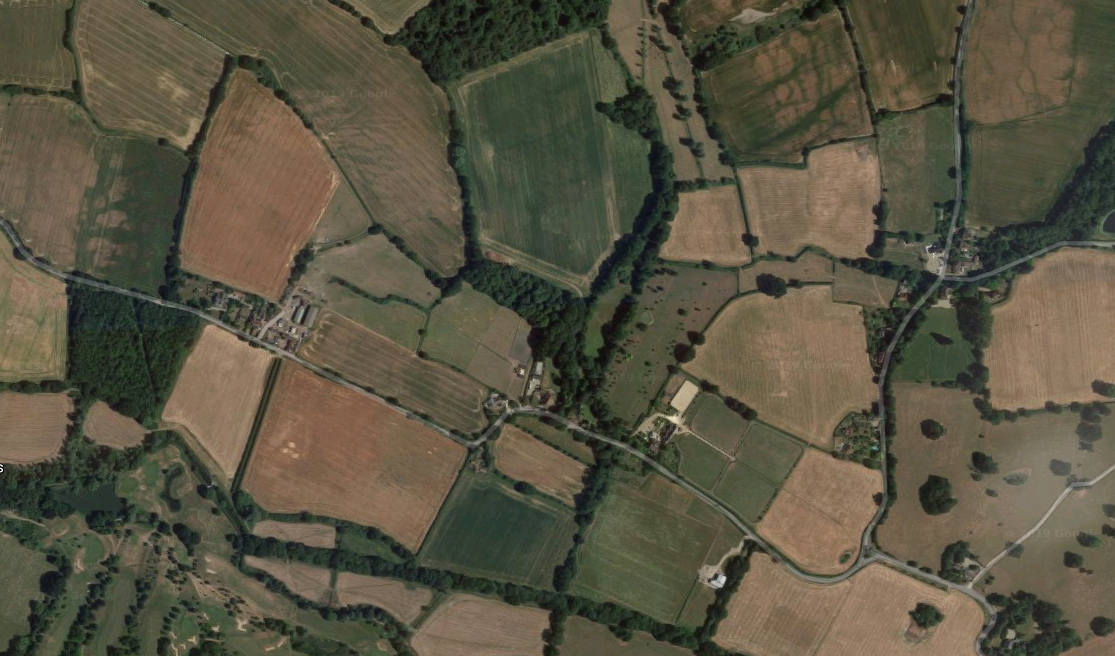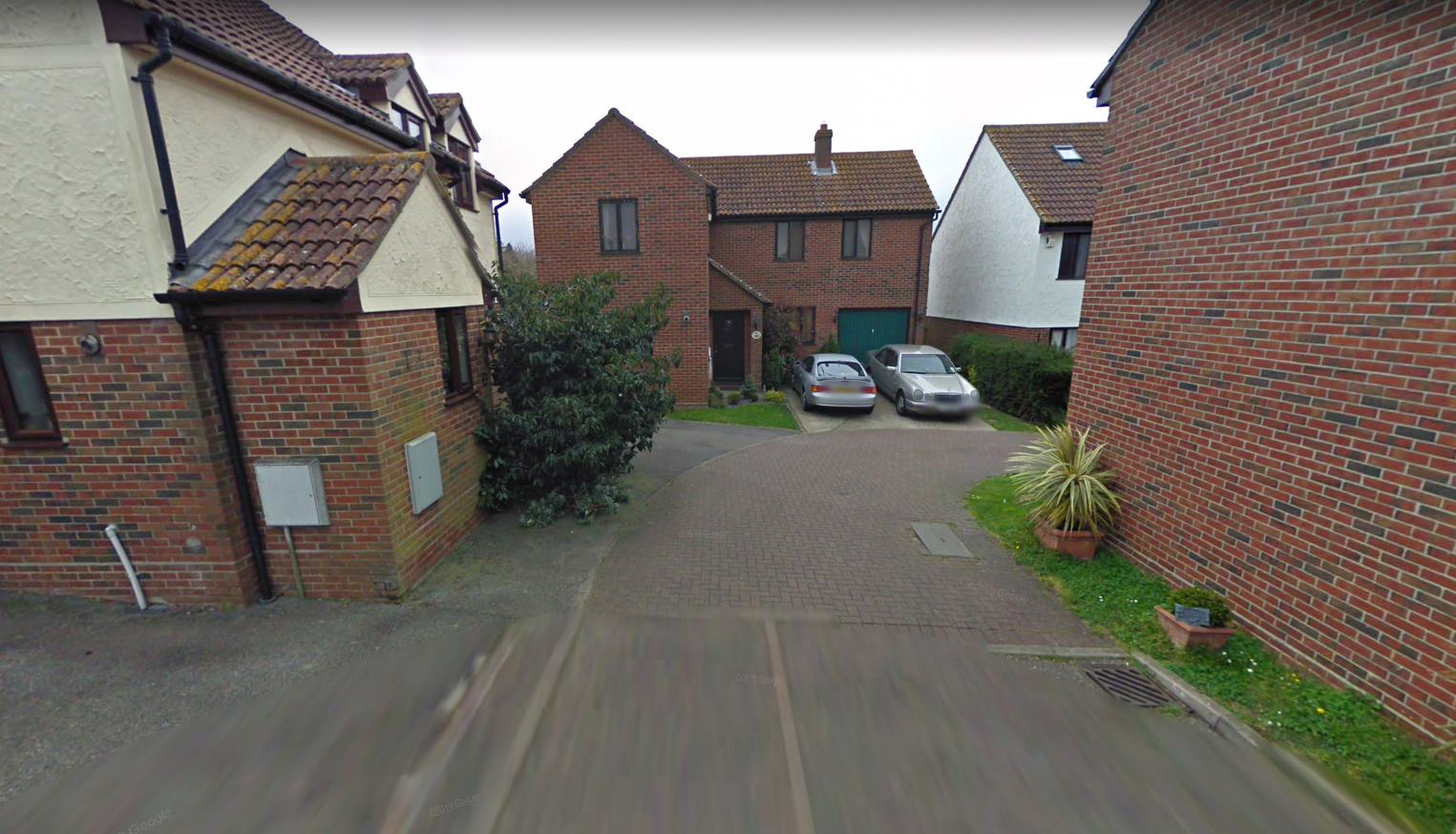Fig.XXX — SEPTEMBER
(2019)
On the twenty-first of September he took off in his car for the village he grew up in.
Three days previous he had passed his driving test on the second attempt and, since then, had found every & any excuse to go out on the road to revel in his new-found freedom, as they say, and to burn through expensive petrol, enjoying the novelty while it lasted. The car was a gift from his parents and the scent of its previous owner lingered; for the time being he kept it clean and emptied the ashtray at the end of each day; on the rear bumper was a decal suggesting the car was targeted at the ‘surfer-dude’ market, which was peculiar because cars were not really something people associated with either surfers or surfing. Every morning he woke up, made two separate cups of black coffee and drank them both while walking in circles in the garden of his parents’ house, then he lifted weights next to the garage, went down the gym, and returned before drinking another cup of black coffee and smoking a joint outside, in whatever weather was provided. If anyone should pass him by as he smoked, he would strike up a conversation, taking care not to sip his coffee when he had an important point to make, only taking a breath when they finally walked away. It was after such a routine on the twenty-first of September that he had a shower, coiffured his hair, checked his card and a suitable amount of cash were in his wallet, then, saying good-bye to the household as they busied themselves with various weekend chores, got into his car and sighed long with a new happiness that caused him to pause and squeeze his knuckles over the steering wheel.
It was not a completely forgotten route. Although the family had moved out when he turned nine, those roads had been travelled several times, passing, as they did, between neighbouring villages; the green arteries & veins of east anglia. Every time the family car passed through that old ironworks village he stared out, and prayed things slow down so he might catch up with age.
The catchphrases of the driving instructor echoed in his mind. At first the catchphrases resounded until they became rhythm, and slowly they would fade out until they became habit.
(Still there isn’t an adequate adjective for womb-like.)
![]()
In a portion of traffic, he positioned his elbow on the faux-leather sill, disrupting ten-and-two. He felt at the edge of his jaw a portion of skin where he used to tear the beard, to pick & pluck it out, for no reason at all, but he noticed, since driving, not a single strand plucked or picked. The hair was starting to grow back. (He sat in the traffic rehearsing the motions until they rolled carefully and deliberately off his limbs, and he swung into the roundabout.) Much of the scenery had changed; everything embossed in childhood’s eye was slowly overcome, turned into a secondhand car dealership, or pubs into maisonettes, a baker’s into a bookie’s.The 88-bus came through here, his brothers on it, against the condensation windows, the hot winter breath and rotten damp smell cocktailed with diesel.Overshadowed by trees, the roads secretly rose up & down sides of the valley. He shared attention between the road and scenery, slowing while passing a place of interest, smiling, peering, jittery. The road swung into the village, turning and then throwing you into it, over a small river (a propped pub there converted to Indian restaurant; as children, half-orange juice, half-lemonade), and the point where a long walk through the woods came out to the road, a road that bored through the village like a digestive system. The speed limit gave him cause to slow down further. Details. Little pieces of history faintly recalled to flutter at the rolled down window as the last gusts of summer blustered in. He felt like he’d been away.
Three days previous he had passed his driving test on the second attempt and, since then, had found every & any excuse to go out on the road to revel in his new-found freedom, as they say, and to burn through expensive petrol, enjoying the novelty while it lasted. The car was a gift from his parents and the scent of its previous owner lingered; for the time being he kept it clean and emptied the ashtray at the end of each day; on the rear bumper was a decal suggesting the car was targeted at the ‘surfer-dude’ market, which was peculiar because cars were not really something people associated with either surfers or surfing. Every morning he woke up, made two separate cups of black coffee and drank them both while walking in circles in the garden of his parents’ house, then he lifted weights next to the garage, went down the gym, and returned before drinking another cup of black coffee and smoking a joint outside, in whatever weather was provided. If anyone should pass him by as he smoked, he would strike up a conversation, taking care not to sip his coffee when he had an important point to make, only taking a breath when they finally walked away. It was after such a routine on the twenty-first of September that he had a shower, coiffured his hair, checked his card and a suitable amount of cash were in his wallet, then, saying good-bye to the household as they busied themselves with various weekend chores, got into his car and sighed long with a new happiness that caused him to pause and squeeze his knuckles over the steering wheel.
It was not a completely forgotten route. Although the family had moved out when he turned nine, those roads had been travelled several times, passing, as they did, between neighbouring villages; the green arteries & veins of east anglia. Every time the family car passed through that old ironworks village he stared out, and prayed things slow down so he might catch up with age.
The catchphrases of the driving instructor echoed in his mind. At first the catchphrases resounded until they became rhythm, and slowly they would fade out until they became habit.
(Still there isn’t an adequate adjective for womb-like.)

In a portion of traffic, he positioned his elbow on the faux-leather sill, disrupting ten-and-two. He felt at the edge of his jaw a portion of skin where he used to tear the beard, to pick & pluck it out, for no reason at all, but he noticed, since driving, not a single strand plucked or picked. The hair was starting to grow back. (He sat in the traffic rehearsing the motions until they rolled carefully and deliberately off his limbs, and he swung into the roundabout.) Much of the scenery had changed; everything embossed in childhood’s eye was slowly overcome, turned into a secondhand car dealership, or pubs into maisonettes, a baker’s into a bookie’s.The 88-bus came through here, his brothers on it, against the condensation windows, the hot winter breath and rotten damp smell cocktailed with diesel.Overshadowed by trees, the roads secretly rose up & down sides of the valley. He shared attention between the road and scenery, slowing while passing a place of interest, smiling, peering, jittery. The road swung into the village, turning and then throwing you into it, over a small river (a propped pub there converted to Indian restaurant; as children, half-orange juice, half-lemonade), and the point where a long walk through the woods came out to the road, a road that bored through the village like a digestive system. The speed limit gave him cause to slow down further. Details. Little pieces of history faintly recalled to flutter at the rolled down window as the last gusts of summer blustered in. He felt like he’d been away.

There was barely room for one to manoeuvre their eyes before that appendix cul-de-sac swallowed him up; a line in the paving — ‘Don’t go beyond it, stay where I can see you.’
The house hadn’t really changed beyond the gentle fracture of time. A big SOLD sign outside, wonky, unnecessary and unseen. The smell of the surrounding fields filled his nose thick and yellow. The sight of the old home intimidated him, and he stood still, silent, coke can in hand, staring up like a tourist in front of some historic wonder. It was, otherwise, exactly as he remembered, and he picked out each wall, each window and door, the room they fronted, where they led, what each concealed, and his joyous long-ago childhood returned to focus after two decades of weary, lonesome suppression. In the bygone summers he and his brothers would play football and his mother would sit down by the open front door, drinking coffee, savouring the cream from atop the silver-lid milk; their dog sat on the step, nervously pushing his paws further from the threshold, testing his limits. Years came back, clocks & clocks, summers, winters, dark evenings & eternal sunshine; they rushed & flooded his mind, pricking him with the happy nausea of nostalgia.
‘Are you lost?’
There were two men in front of him; not quite in front of him but to the side, on the drive of his old neighbour. Aged, grey and skin, he recognised them after a stiff second of shock: David and Tim. The former used to curse the kids for playing football outside and catching his waxed car with the worn ball, and the latter used to curse the kids for kicking the ball against his wall while his baby tried to sleep. They had obviously been in deep discussion, mundane subjects no doubt, such was their characters — unless inebriated at block parties — and now they stood before this intruder on a dead-end that so very very few ever walked into.
‘It’s me—’ he said his name—‘I used to live in that house there, I was the youngest. Do you remember me?’ They looked at him. Tim had no clue. David stared, squinted; it had been twenty formative years, he adjusted for age, grey and skin, hair, broad what had been slender before. As things became clearer a smile spread across his face. ‘Ah yes!’ he said his name—‘I remember you!’ The last day of summer.